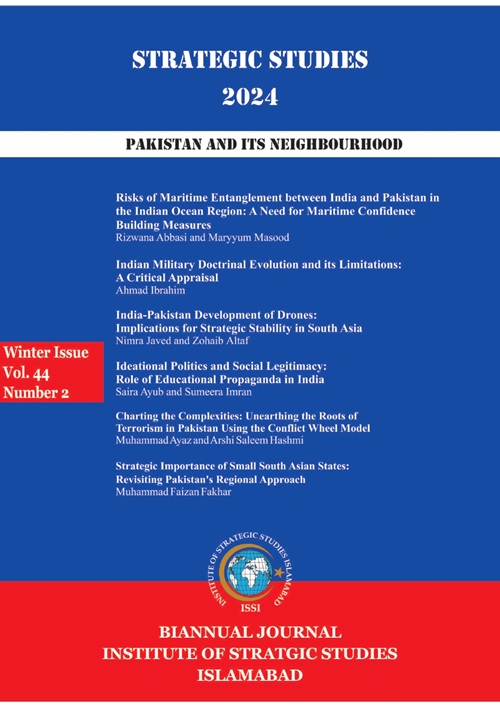IDEATIONAL POLITICS AND SOCIAL LEGITIMACY
ROLE OF EDUCATIONAL PROPAGANDA
Abstract
The study explores how educational reforms work as a tool of advocacy for creating social and political legitimacy in ethnically diverse societies. Within this context, the article focuses on the case study of India. Since the BJP assumed power in 2014, RSS has sought to Indianize the educational curriculum. Accordingly, Indian National Council for Education Research and Training (NCERT), which is an autonomous body, has revised the textbooks of sociology, history and science. These reforms have been criticized by the Indian liberal circles for being bigotry and for spreading religious fanaticism among the Indian masses. The study aims to unveil the consequences of NCERT reforms for Indian societal cohesion and democracy. It employs the theory of political propaganda as the theoretical framework with content analysis as the research tool to explore the techniques and methods used by RSS to achieve its objectives. The study argues that NCERT reforms portray the RSS desire of expanding its ideological appeal in society. The study holds significance for academicians, policy makers and researchers interested to explore the religiously inclined groups’ use of propaganda tools in education for instrumental interests. Furthermore, the study draws implications of ideologically driven education for the societal fabric of India in particular and the world community at large.

Published
How to Cite
Issue
Section
Copyright (c) 2025 Strategic Studies

This work is licensed under a Creative Commons Attribution-NonCommercial 4.0 International License.



